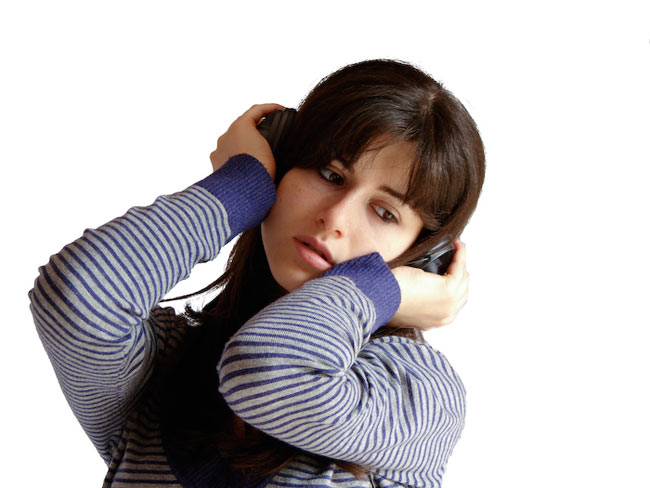Music Can Soothe Cancer Patients' Anxiety

Listening to music or playing an instrument may reduce anxiety and pain in cancer patients and improve their quality of life, according to a new review.
The findings suggest music therapy could be used in conjunction with other cancer treatments to improve patients' daily lives.
"I think it's definitely worth offering to patients [to] see if it works for them," said study researcher Joke Bradt, a music therapist and associate creative arts professor at Drexel University in Philadelphia. In contrast to anxiety-reducing medications, music therapy comes with almost no risk of adverse side effects and is cheaper, Bradt said.
The findings add to a growing body of research suggesting that music has a number of health benefits, including reducing blood pressure in cardiac patients and lessening the amount of sedation needed before surgery.
However, Bradt said many studies of music therapy are of a small number of patients. Additional studies are needed, especially controlled clinical trials, which randomly assign patients to receive a treatment or not, Bradt said.
Music therapy
Bradt and colleagues reviewed 30 trials of music therapy for patients with any type of cancer, a total of nearly 1,900 participants.
Get the world’s most fascinating discoveries delivered straight to your inbox.
Cancer patients either listened to pre-recorded music or took part in sessions with a music therapist. Music therapists are trained to assess the needs of patients and play appropriate songs to address the patients' concerns, Bradt said. In addition, sessions with a music therapists can involve singing, playing a musical instrument or composing music, and may be conducted with the patients' family participating, she said.
About 64 percent of patients who received music therapy reported an improvement in their anxiety symptoms, compared with 36 percent of patients who did not receive music therapy, Bradt said. About 73 percent of music therapy patients reported an improved quality of life, compared with 27 percent of control patients.
Small improvements were seen in heart rate, respiratory rate and blood pressure in patients who received the music therapy compared with those who did not.
The researchers found no effect on patients' symptoms of depression and fatigue, Bradt said. However, this might be because so few studies looked at these symptoms, she said.
The benefits of music therapy were seen regardless of whether patients passively listened to music or participated in sessions with a music therapist. More research is needed to determine whether the effect of music therapy is stronger with the help of a therapist, Bradt said.
Why does it work?
Music may distract people from pain or anxiety about cancer treatment side effects, Bradt said, and the right piece of music can relax patients.
Music can also help patients communicate with their families . Bradt said it can sometimes be hard for patients' friends and caregivers to talk with their loved ones about their condition and express how they are feeling.
"In a music therapy session, you may be able to select a song you feel would express perfectly what you're trying to say to this patient," Bradt said.
Bradt said engaging in music making can also be empowering. "This is important as patients may feel victimized by their cancer," she said.
The study is published in the August issue of the Cochrane Database of Systematic Reviews.
Pass it on: Music therapy may be a useful treatment for cancer patients in conjunction with their regular treatment.
This story was provided by MyHealthNewsDaily, a sister site to LiveScience. Follow MyHealthNewsDaily staff writer Rachael Rettner on Twitter @RachaelRettner.

Rachael is a Live Science contributor, and was a former channel editor and senior writer for Live Science between 2010 and 2022. She has a master's degree in journalism from New York University's Science, Health and Environmental Reporting Program. She also holds a B.S. in molecular biology and an M.S. in biology from the University of California, San Diego. Her work has appeared in Scienceline, The Washington Post and Scientific American.
 Live Science Plus
Live Science Plus





